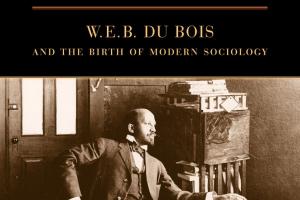W.E.B. Du Bois’ Study ‘The Philadelphia Negro’ at 125 Still Explains Roots of the Urban Black Experience – Sociologist Elijah Anderson Tells Why It Should Be on More Reading Lists
The Conversation
 This new book argues that W. E. B. Du Bois was the first of the USA's modern sociologists. Du Bois's empirically-based studies of African Americans at the end of the nineteenth and the beginning of the twentieth centuries are models of sociological research. Aldon Morris details this legacy, which academic Sociology still does not universally acknowledge. In this review, Monica Bell considers the significance of Morris's argument.
This new book argues that W. E. B. Du Bois was the first of the USA's modern sociologists. Du Bois's empirically-based studies of African Americans at the end of the nineteenth and the beginning of the twentieth centuries are models of sociological research. Aldon Morris details this legacy, which academic Sociology still does not universally acknowledge. In this review, Monica Bell considers the significance of Morris's argument.
Spread the word